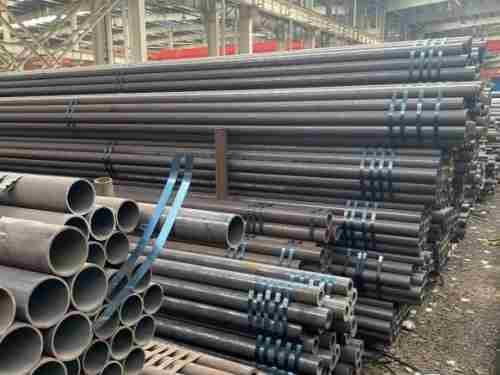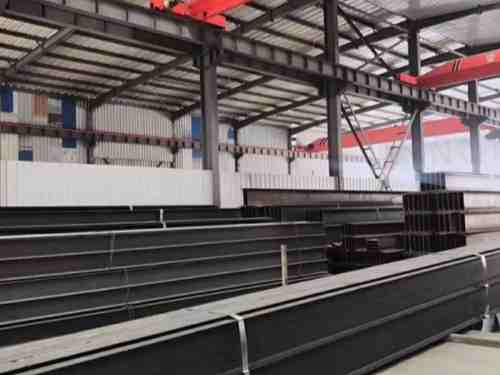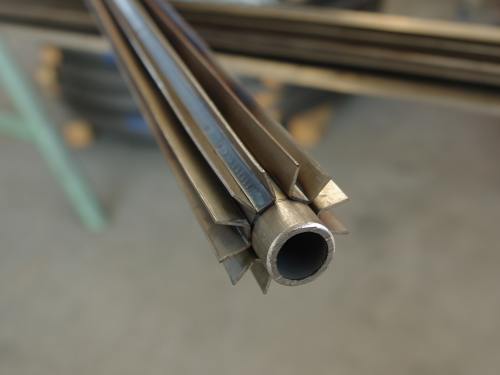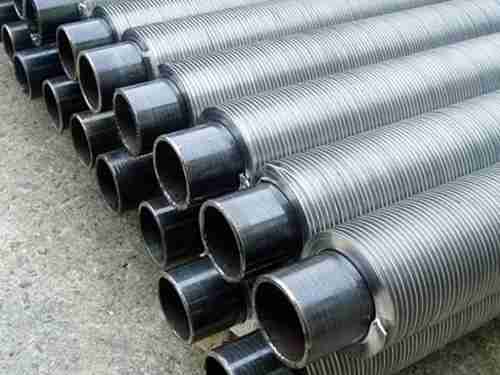When selecting steel pipes, a common question is whether to use seamless or welded pipes. Making the right choice is essential to ensure the pipeline's stability, durability, and cost-effectiveness. A key factor in this decision is the nominal size of the pipe.
Generally:
Seamless pipes are preferred when the nominal size is greater than 2 inches, especially in high-pressure or harsh environments.
Welded pipes are more economical and practical when the nominal size is 2 inches or smaller, where operating conditions are less demanding.
This article explains the concept of nominal size and its role in choosing the appropriate type of steel pipe.
What Is Nominal Size?
Nominal size refers to a standardized pipe dimension, typically measured in inches or millimeters. It is not the actual outer diameter, but a reference value used for classification and specification.
Why it matters:
Nominal size reflects usage conditions: Larger nominal sizes often indicate applications requiring greater pressure resistance or structural integrity—areas where seamless pipes excel.
Production and cost implications: Smaller-diameter pipes are more cost-efficient to produce as welded pipes, with sufficient strength for lower-pressure systems.
Comparison of Advantages And Disadvantages of Seamless Pipe and Welded Pipe
|
Features
|
Seamless pipe
|
Welded pipe
|
|
Advantages
|
Withstand higher pressure and more extreme environmental conditions
|
Low production cost
|
|
No welded seams, reduce crack risk
|
Suitable for small-sized pipes, short production cycle
|
|
Higher corrosion resistance and wear resistance
|
Suitable for large-scale production and daily pipeline applications
|
|
Disadvantages
|
Complex production process and high cost
|
Low pressure bearing capacity, easy to have defects at welds
|
|
Not suitable for some low-pressure applications
|
Poor adaptability to high temperature and high pressure environment
|
When to Choose Seamless Pipes
Seamless pipes are manufactured through a more complex process, resulting in higher production costs—but they deliver superior performance, especially in high-pressure and demanding environments. These pipes typically have a nominal size greater than 2 inches and are capable of withstanding higher internal pressures without the risk of cracking at weld seams.
Recommended scenarios for seamless pipes include:
Oil and gas transmission pipelines
OCTG (Oil Country Tubular Goods) applications
High-temperature or high-pressure industrial systems
Their integrated structure and high strength make seamless pipes the preferred choice for critical applications where safety and durability are paramount.
When to Choose Welded Pipes
Welded pipes are produced through a simpler process, making them more cost-effective, particularly for smaller sizes. They typically have a nominal size less than or equal to 2 inches, and while the presence of a weld seam can slightly reduce pressure tolerance, welded pipes still perform well in low to medium pressure systems.
Common application scenarios for welded pipes include:
Residential and commercial plumbing
HVAC (Heating, Ventilation, and Air Conditioning) systems
Fire protection and low-pressure industrial piping
When cost-efficiency and availability are key concerns—and pressure requirements are moderate—welded pipes offer a practical solution.
Summary: How to Make the Right Choice
Choosing between seamless and welded steel pipes depends primarily on nominal size and application requirements:
|
Pipe Type
|
Nominal Size
|
Key Advantage
|
Typical Use Case
|
|
Seamless
|
> 2 inches
|
High pressure resistance, no weld seam
|
Oil/gas pipelines, high-temp systems
|
|
Welded
|
≤ 2 inches
|
Lower cost, sufficient for low pressure
|
Water supply, HVAC, residential plumbing
|
While size is a major factor, always consider the working environment, pressure demands, safety requirements, and budget when selecting the most suitable pipe material.

 English
English Español
Español











